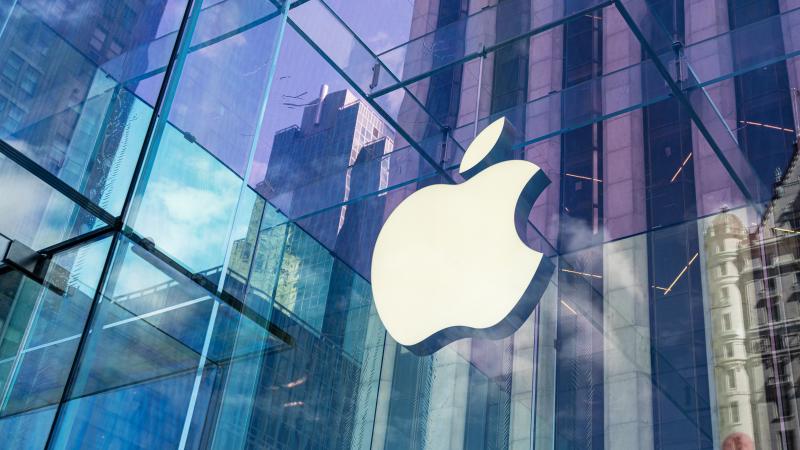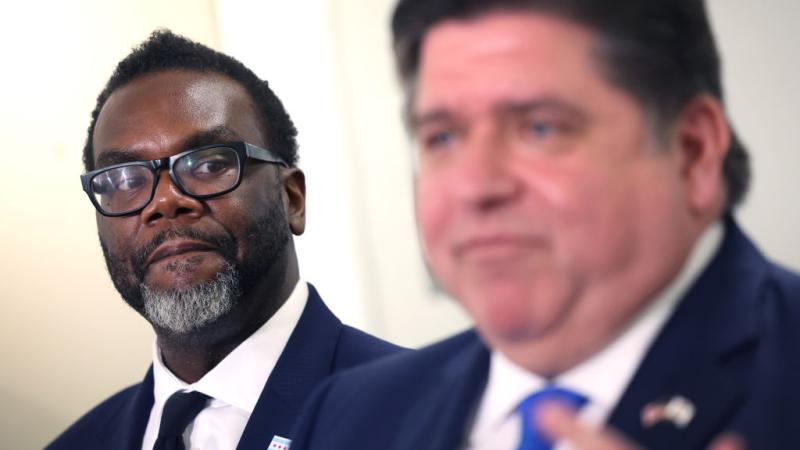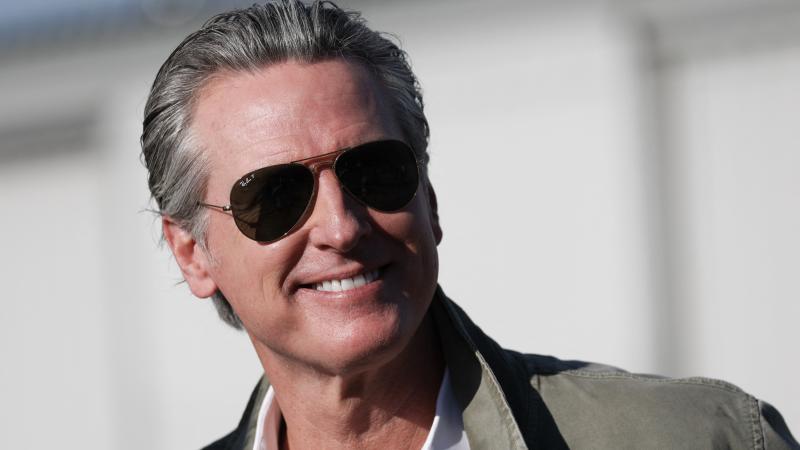Celebrity climate scientist’s libel suit win raises concerns about free speech protections
A 2012 blog posting compared investigation into Mann’s research practices to the university's investigation into assistant coach Jerry Sandusky, who was found guilty of sexually abusing 10 young boys over the course of 15 years.
Climate celebrity Dr. Michael Mann won his defamation suit against conservative writers who criticized his research.
A jury Thursday awarded Mann $1 in compensatory damages and $1,000 in punitive damages against Rand Simberg, and $1 in compensatory damages and $1 million in punitive damages against Mark Steyn.
Open debate
While the case involved writings posted nearly 12 years ago, many of those who question the “climate crisis” narrative or that climate change is happening are concerned how the case will impact their ability to express opposition to the dominant narrative.
“It's very concerning for scientific debate. The verdict is clear that no damage was done to Dr. Mann, and that the financial award is meant to send a message. What is that message? Don't question science? Well, that's how science is done,” Dr. Matt Wielicki, former assistant professor in the Department of Geological Sciences at the University of Alabama and author of “Irrational Fear,” told Just The News.
In 2012, Simberg posted an article on a Competitive Enterprise Institute blog that compared a Penn State investigation into Mann’s research practices to the university's investigation into assistant coach Jerry Sandusky, who was found guilty of sexually abusing 10 young boys over the course of 15 years.
Steyn, in his own article published in the National Review, quoted from Simberg’s piece and called Mann’s research “fraudulent.” Mann claimed that as a result of these posts, his reputation was harmed, which he said led to a drop in grant funding. Mann also testified he once received a “mean look that expressed revulsion” while he was shopping at a grocery store.
Testimony in the case revealed many details about Mann’s vitriol against critics, allegations he interfered to stop the publication of another climate scientist’s work, false claims that he had won a Nobel Prize, and questions about the accuracy of his research conclusions.
“Although this may be a blow to free speech and healthy scientific debate, it did expose Dr. Mann as the narcissistic egomaniac and terrible scientific colleague that he is, in my opinion,” Wielicki said.
Multiple media outlets have characterized the trial as a war between climate science and climate deniers, and its favorable outcome for Mann being a victory against those who question or criticize mainstream climate science. Kate Cell, a senior climate campaign manager for the Union of Concerned Scientists, told the Associated Press that a victory for Mann would “reduce the comfort and regularity with which those who do not accept climate change science speak, and speak nastily, about climate scientists.”
Micheal Gerrard, who is a member of the board of directors for the Climate Science Legal Defense Fund, told the New York Times that the trial was a “rare case where a climate scientist is fighting back against climate deniers.” The Climate Science Legal Defense Fund provides funding and support for climate scientists who claim they’re being harassed by critics.
The anti-fossil fuel advocacy blog “DeSmog” called the verdict a “victory over climate deniers” that will send “a strong message in defense of climate science and scientists.”
The Washington Post characterized the trial as “part of a mounting campaign to defend scientists against attacks from right-wing critics.” In closing arguments during the trial, Mann’s attorney John Williams told the jury, “These attacks on Climate Scientists have to stop, and you now have the opportunity—”
Simberg’s attorney objected to the remark, which the judge sustained.
Chilling effect
Dr. Jane Kirtley, professor of media ethics and law at the University of Minnesota, told Just The News that she’s reluctant to cheer for libel cases, even when she is sympathetic to the plaintiffs, because they tend to have a chilling effect on free speech.
“There’s a potential that they’ll do mischief in future cases against news organizations,” Kirtley said.
She said Mann’s case has the potential to be an anti-SLAPP candidate, which are state laws that provide a means for defendants in libel lawsuits to have cases dismissed at an early stage. In some cases under some state laws, the plaintiffs in libel suits who lose anti-SLAPP suits can be made to repay legal expenses of the defendants.
In 2017, for example, Stanford Professor Mark Jacobson sued the scientific journal National Academy of Sciences for defamation and the author of a study that was critical of Jacobson’s study concluding that the U.S. could replace all fossil fuel electricity generation with wind, solar and hydroelectric power. Jacobson voluntarily dropped the suit after several months, but the defendants hit Jacobson with an Anti-SLAPP motion, and Jacobson was ordered to pay over $400,000 to the defendants in his libel suit. Jacobson is appealing the decision.
Referring to the 1991 case, Immuno Ag. v. Moor-Jankowski, in which a New York high court dismissed a libel suit over a letter to the editor in a scientific journal, Kirtley said commentary on scientific papers needs to be subject to a high level of First Amendment protection. “I don't want to say this lightly. It is statements of opinion, and opinion and debate is essential to the whole scientific process,” Kirtley said.
In the case of Mann’s suit, Kirtley said, Steyn’s and Simberg’s statements were rhetorical hyperbole that should not make actionable, viable claims. “I would be skeptical that Dr. Mann suffered any serious harm given that he seems to still be a rising star in the climate science community,” Kirtley added.
Appeals
George Freeman, executive director of the Media Law Resource Center, told Just The News that the disparity between the compensatory damages and the punitive damages are “highly questionable.” The two, he explained, are supposed to be somewhat related.
“I would not at all be surprised if that was reversed by either the trial judge or an appellate court eventually down the road,” Freeman said. The fact the jury didn’t provide any compensatory damages, he said, suggests the jury didn’t think Mann suffered any reputational damage.
The comparison to Sandusky, Freeman said, is likely what prevented the case from being dismissable as a matter of pure opinion, which is a defense against defamation, and led it to a trial before a jury who ultimately decided to punish the defendants.
“A defendant would argue that’s [comparisons to Sandusky] all rhetorical. At any event, I can’t say I’m totally surprised that the jury didn’t find that to be somewhat problematic,” Freeman said.
Lincoln Bandlow, a media and entertainment attorney in Los Angeles, told Just The News that Simberg was making an analogy in the comparison of Penn State’s investigation of Mann’s research practices to its investigation of Sandusky.
“Obviously, Mark Steyn is a very colorful speaker. But juries tend to confuse personal, or at least the appearance of personal animosity, with actual malice, which are entirely two different things,” Bandlow said. This is also why, he said, that courts of appeal often reverse these verdicts. Bandlow said that Mann tends to be a “media whore,” and he should expect to receive a fair amount of criticism.
“If you want to be a celebrity scientist, you are going to get some heat. That’s the nature of the game, and you should expect it. And you need to be able to take it,” Bandlow said.
Dishing it out
While Mann hasn’t been open to receiving criticism, he has been quite willing to dish it out.
Dr. Judith Curry, who provided an expert report in Mann’s case, testified that comments Mann made in an opinion piece he published in the Huffington Post in 2013, ultimately destroyed her academic career. In the piece, Mann called her a “serial climate disinformer.”
As she explained in an ethics complaint to the Research Integrity Officer at Penn State, Mann accused her of “deceiving” readers, ‘spewing denialist nonsense.” He also shared the Huffington Post article on his Twitter account, and the article was included in a daily news feed that was emailed to all Georgia Tech faculty, staff and students. Mann’s statements also featured prominently in Google searches of Curry’s name, she said on her blog.
At the time, she was being considered for an internal position at Georgia Tech, for which she was one of three finalists, and Dean of a College at another university. She didn’t get either position.
She said she ultimately decided not to send the ethics complaint as the damage to her career had already been done, and she wasn’t sure the complaint would accomplish anything.
“My first reaction was that this is really bad for Georgia Tech's brand. My second thought was that all this also made me unhirable at any other university. My third thought was that Michael Mann’s destruction of my reputation and academic career was now complete. This is what real damage to someone’s career looks like,” she wrote on her blog Thursday.
Curry testified to these events in the trial, but the Washington Post and Associated Press articles on the trial made no mention of Curry’s testimony.
Legal trick
Some, especially those critical of mainstream climate science, are worried that the outcome of the trial will have a chilling effect on free speech.
“Big verdicts like this, I think, always have a slight chilling effect. They always cause people to be more cautious in their speech than they might have before. It’s hard to quantify that, and you hope that you know people will still engage in public debate but yeah, it's got to have some effect,” Bandlow said.
Jeff Reynolds, senior investigative researcher with Restoration of America, told Just The News that the defense might have been better off arguing free speech and libel law than getting bogged down into the science.
“This case was 80% won when Mann’s team filed in DC court. Mike’s Legal Trick—making the trial about attacking science itself, not the merits of constitutional freedoms—will go into Mann’s pantheon along with Mike’s Nature Trick, and Mike’s Other Nature Trick,” Reynolds said.
On his Substack, “The Honest Broker,” Dr. Roger Pielke, Jr., professor of environmental studies at the University of Colorado at Boulder, had a similar conclusion.
“The case, at least in this particular venue, was simply unwinnable no matter what cases were put on by the prosecution and the defense. Mann simply had to show up,” Pielke wrote. He said Mann’s case will likely inspire similar suits. “I would not be surprised to now see a flurry of lawsuits against people who have been critical of climate science or climate scientists,” Pielke wrote.
Originally, the National Review and Competitive Enterprise Institute were named in Mann’s suit, but in 2001, a D.C. Superior Court ruled that those publications couldn’t be held liable.
The New York Times reported that Mann’s attorneys have indicated they will appeal that decision.
“They’re next,” Mann’s attorney John Williams said. Mann did not respond to requests for comment on Curry’s statements or the effect his successful libel suit might have on the free speech of climate skeptics.
Responding to a comment on X Thursday proposing he go after the publications, Mann responded, “Stay tuned…”
The Facts Inside Our Reporter's Notebook
Links
- jury Thursday awarded Mann
- Irrational Fear
- Competitive Enterprise Institute
- investigation into assistant coach Jerry Sandusky
- mean look that expressed revulsion
- Mannâs vitriol against critics
- allegations he interfered to stop the publication of another climate scientistâs work
- false claims that he had won a Nobel Prize
- questions about the accuracy of his research conclusions
- told the Associated Press
- Climate Science Legal Defense Fund
- told the New York Times
- victory over climate deniers
- Washington Post called
- sued for defamtion the scientific journal National Academy of Sciences
- ordered to pay over $400,000 to the defendants in his libel suit
- appealing the decision
- Immuno Ag. v. Moor-Jankowski
- Huffington Post in 2013
- ethics complaint to the Research Integrity Officer at Penn State
- she said on her blog
- wrote on her blog Thursday
- Restoration of America
- Mikeâs Nature Trick
- The Honest Broker
- New York Times reported
- Mann responded
















